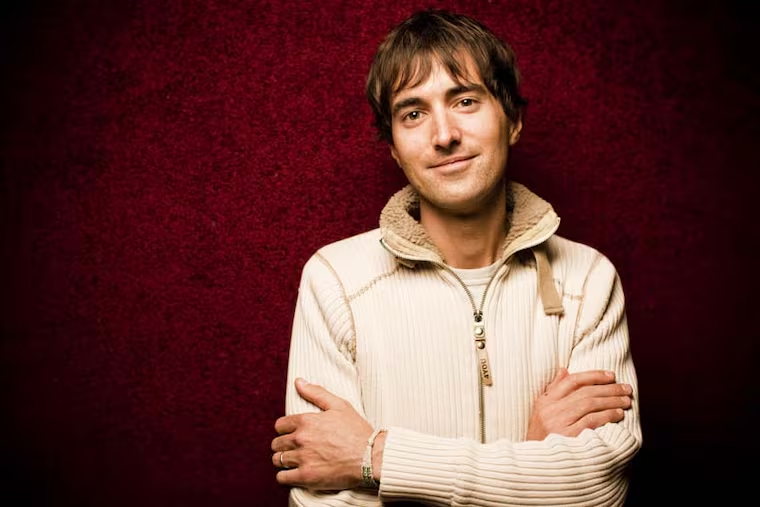He’s been a DJ of electronic dance music. He also wrote the Philadelphia Orchestra’s new piano concerto.
Mason Bates's new piano concerto, premiered Friday afternoon with pianist Daniil Trifonov, might please traditionalists.

What’s a piano concerto today? The vast, varied musical revolution that was the 20th century said that anything goes. And so the hot-off-the-press piano concerto given its world premiere by the Philadelphia Orchestra Friday afternoon could have pushed all kinds of boundaries in form and style and still qualified as a piano concerto.
Its composer, too, might have reached into any number of influences. His biography includes work as a DJ. But Mason Bates, 44, a Californian who was born in Philadelphia, has produced a concerto whose basic contours would have been recognizable to any concert hall denizen a century ago.
Traditionalists should be happy, and they were, judging from the spirited Verizon Hall audience reaction to the piece led by Yannick Nézet-Séguin. A large part of the approval surely had to do with the soloist, Daniil Trifonov, who has developed a solid relationship with this orchestra in recent years. Bates gave the pianist lots of presence, both in technically showy flourishes as well as stretches of spare, crystalline introspection.
But none of Trifonov’s brilliant qualities would have touched off such immediate listener love had this Piano Concerto — co-commissioned by the Philadelphia Orchestra and San Francisco Symphony — not been so listener-friendly. Its three-movement, moderate-slow-fast structure couldn’t have seemed more familiar. The musical language itself is emotionally direct.
And it had, for want of a better term, story. Every listener will have a personal reaction, of course, but Bates’ great strength is that he writes in a clear, personal voice, which to these ears often echoes the best of film-score writing. The sensation of a carefree Saturday morning came to mind in the first movement. This is unfailingly good-natured music, and who can’t be grateful for a trip to good and carefree in a score time-stamped with an October 2021 completion date? But then there are sections of complexity you’d like to examine over and over, like the one later in the first movement from the piano-alone music to the orchestral climax.
Even when he’s “melancholic” — as the second movement is marked in places — Bates always has the sun within easy reach. Trifonov heard some of the writing as a musical cousin to Rachmaninoff, and played it with fitting tenderness and dash. The sense of story continued to play out in a third movement touching on Americana and a near-pop-music vibe. I especially loved when the movement took on a watery texture, as if we were following along on an IMAX adventure suddenly submerged.
Mason Bates’ entry in the piano concerto genre might not go down as a milestone of innovation. But if the 21st century taught us anything about the 20th, it’s that innovation soaked up a disproportionate amount of attention from aficionados while the rest of the public was still eager to connect with a more accessible sound. (And, of course, accessibility and innovation are not mutually exclusive.) Bates’ work achieves about the only thing we should expect from a composer in any age: a sincere, strongly expressed personal statement.
If the current Verizon Hall program wasn’t listener-friendly enough, the orchestra rounded it out with Sheherazade. Rachmaninoff’s The Bells was originally announced, but the vocal-heavy piece was replaced by the Rimsky-Korsakov because of COVID-related concerns, an orchestra spokesperson said.
The value in the Rimsky wasn’t so much Nézet-Séguin’s contribution, though you could admire the alternating menace and sweetness he pulled from the score, but in mulling individual players. There was lots to love, in particular solos from clarinetist Ricardo Morales, harpist Elizabeth Hainen, guest trombonist Weston Sprott, and violinist David Kim.
Oboist Philippe Tondre’s presence in the orchestra has continued to inspire talk within the oboe world about whether he fits in stylistically. In a way, it’s the wrong question. The fact is, stylistically, the wind players of this orchestra have become more and more individualized in recent years, and homogeneity is less a shared value than it once was. Tondre, here and on many nights, has set a high standard. His is the sound of an orchestra moving forward.